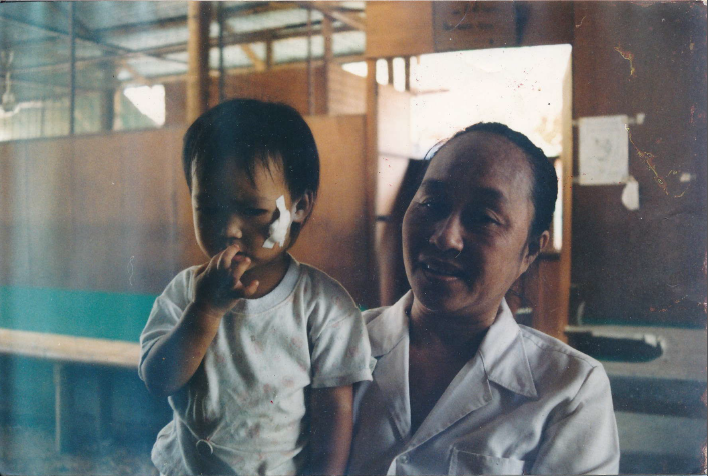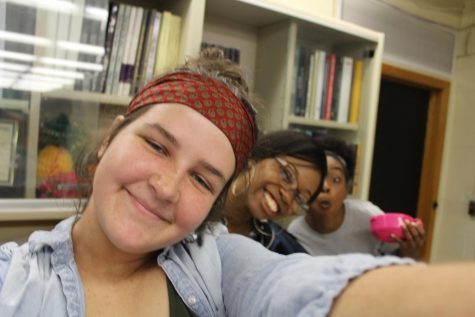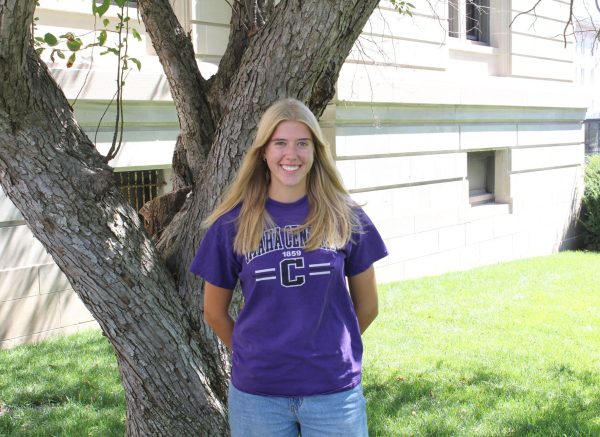Thai refugee overcomes difficulty adjusting to American school system
February 12, 2016
Wah Paw Bweh, sophomore, is an honor student, a three season athlete and a Thai refugee. She was born in a refugee camp in Northern Thailand in 1999 and lived in the camp until she began boarding school when she was three years old. When Bweh was eight years old, her family was finally allowed to move America.
The Bweh family has lived in Nebraska for six or seven years, but they previously lived in California for a year. They lived in Thailand until Bweh was eight.
The refugee camp was really underdeveloped and the houses were made out of scrap wood and bamboo. Some people didn’t have a lot to live with. To make money, the people in the camp would sell food such as chips and drinks.
The emigration process from Thailand is an extremely lengthy one. “My grandma used to live in Burma, and then she moved into the [refugee] camp in Thailand. You have to live in the camp for at least 15 years in order to get through the UN and to get help to go to the US,” explained Bweh.
Once Bweh and her family made it to California, they needed to adjust to a new culture. “It was really different,” said Bweh.
Even the smallest variations between America and Thailand made a difference. Notably, the American and Thai school systems differed greatly. “In Thailand the teachers were really strict and really mean. They get to hit you, so whenever you don’t behave, you go in front of the class and [the teacher] either whips you or hits you with the back of the chalkboard eraser.”
“I was a nerd and I just listened to the teacher,” said Bweh.
Bweh’s boarding school in Thailand was a very mathematically focused school. In America, most students learn their multiplication tables in third grade; in Thailand, the students had to learn them in the first grade.
In Thailand, Bweh’s school began at 8:00 a.m. and got out at 4:00 p.m. After school tutoring is required until around 6:00 in addition to extra-curriculars such as sports, clubs and committees. Students’ days are long and contain an extremely rigorous curriculum.
Bweh went from difficult and strict schooling and living in a refugee camp in Thailand to a completely new education system and living in a completely new country. “It was kind of hard for me,” said Bweh. “I started second grade in California, and I didn’t know anything.”
“I remember the third or fourth day of school, we had a test and the teacher made me take it too and I didn’t know what I was doing, so I just copied off the kid next to me,” said Bweh. It was difficult for her to adjust to the Californian environment and she also struggled with communicating with other children. “I didn’t have any friends at first, but they were really friendly and they tried to talk to me and communicate with me,” she said.
When she initially came to America, she knew very little English. “In Thailand, we would have English classes, but they only taught us simple words like ‘apple,’ ‘balloon’ and the ABC’s,” said Bweh.
In 2009, Bweh and her family finally settled in Nebraska. When she first arrived, it was snowing and she remembers that she was extremely confused. In California, Bweh and her family would go on daytrips to the beach every week, but once they got to Nebraska, they realized that there wasn’t much to do.
She didn’t like it in Nebraska at first, but she eventually adjusted to the slow pace, another new school and she made new friends. “I found my friend [from Thai school] on Facebook…and we started talking.” She plans to visit Thailand after high school.
Today, Bweh speaks fluent Karen, her parents’ native language, Thai and English. She also plays soccer and golf and is a member of the girls’ powerlifting team. Although her story is an elaborate one, she wouldn’t change a thing.















